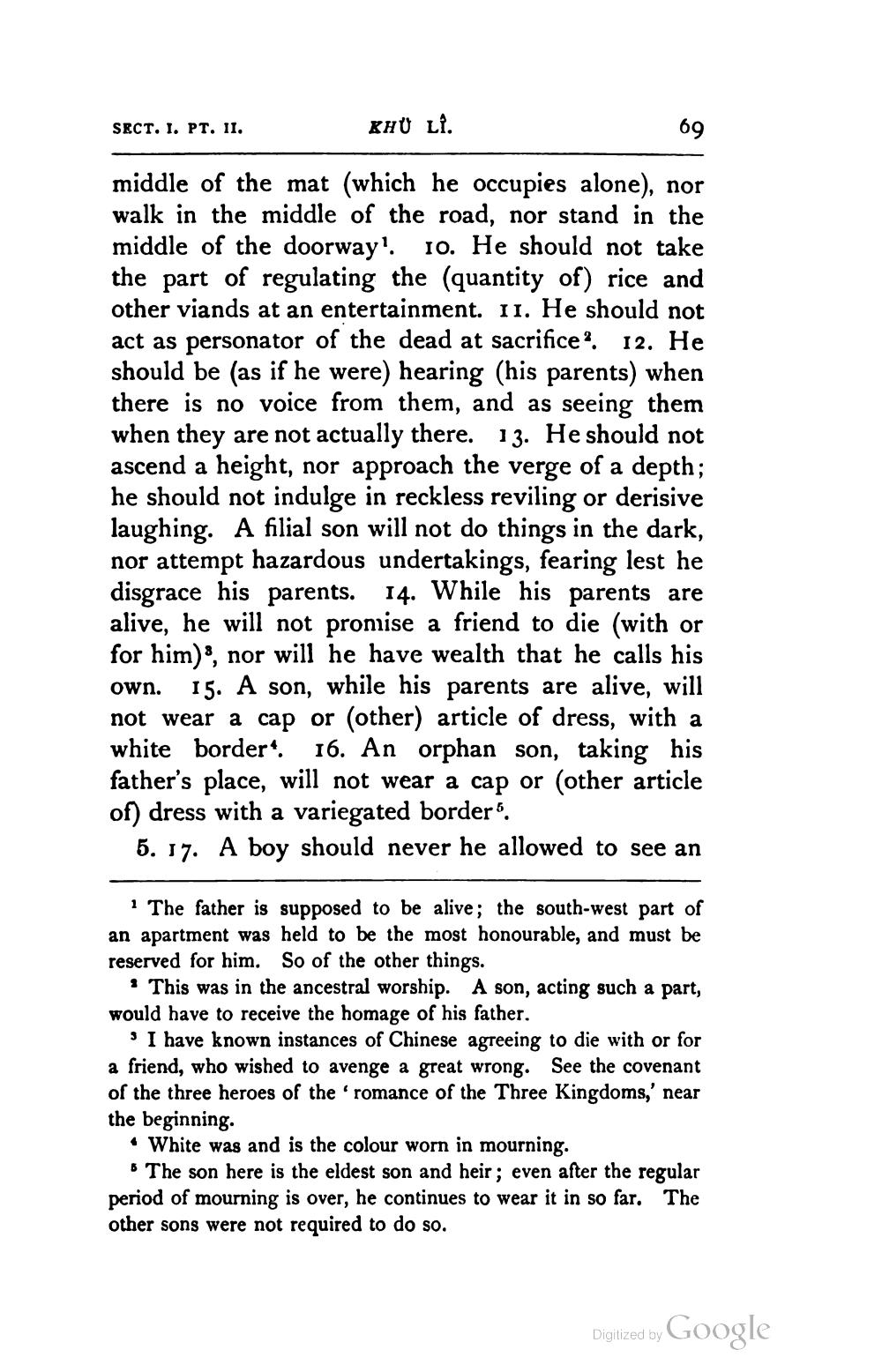________________
SECT. I. PT. 11.
KHU LI.
middle of the mat (which he occupies alone), nor walk in the middle of the road, nor stand in the middle of the doorway? 10. He should not take the part of regulating the (quantity of) rice and other viands at an entertainment. 11. He should not act as personator of the dead at sacrifice? 12. He should be (as if he were) hearing (his parents) when there is no voice from them, and as seeing them when they are not actually there. 13. He should not ascend a height, nor approach the verge of a depth; he should not indulge in reckless reviling or derisive laughing. A filial son will not do things in the dark, nor attempt hazardous undertakings, fearing lest he disgrace his parents. 14. While his parents are alive, he will not promise a friend to die (with or for him), nor will he have wealth that he calls his own. 15. A son, while his parents are alive, will not wear a cap or (other) article of dress, with a white border: 16. An orphan son, taking his father's place, will not wear a cap or (other article of) dress with a variegated border.
5. 17. A boy should never he allowed to see an
1 The father is supposed to be alive; the south-west part of an apartment was held to be the most honourable, and must be reserved for him. So of the other things.
* This was in the ancestral worship. A son, acting such a part, would have to receive the homage of his father.
. I have known instances of Chinese agreeing to die with or for a friend, who wished to avenge a great wrong. See the covenant of the three heroes of the 'romance of the Three Kingdoms' near the beginning.
• White was and is the colour worn in mourning.
• The son here is the eldest son and heir; even after the regular period of mourning is over, he continues to wear it in so far. The other sons were not required to do so.
Digitized by Google




